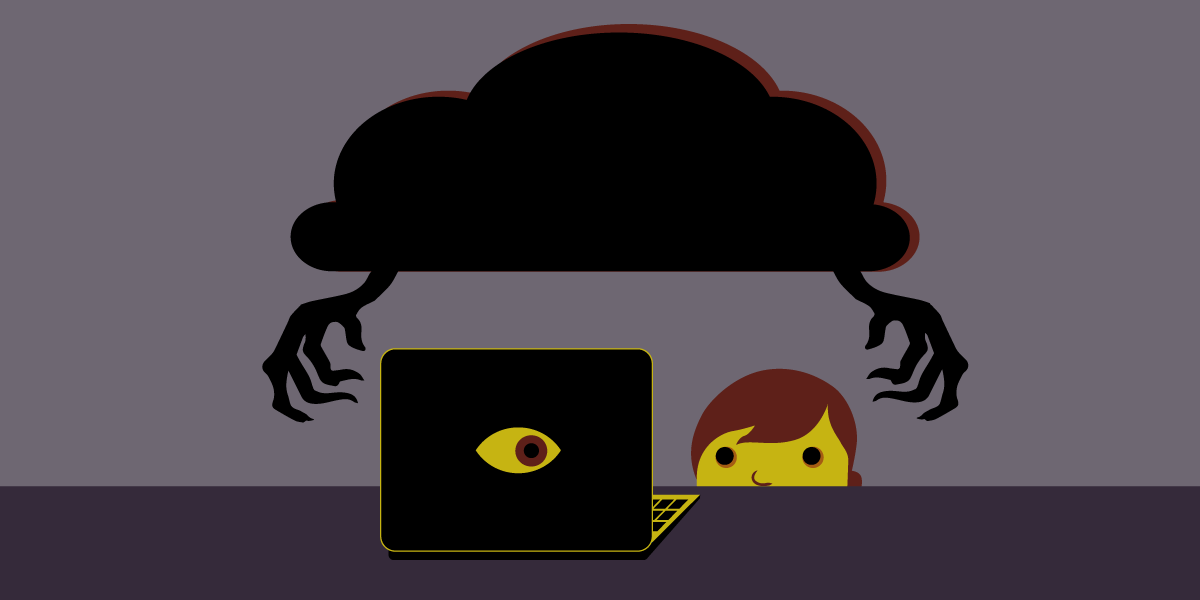A new bill sponsored by Sen. Schatz (D-HI), Sen. Cotton (R-AR), Sen. Murphy (D-CT), and Sen. Britt (R-AL) would combine some of the worst elements of various social media bills aimed at “protecting the children” into a single law.
Message sent. One of the cosponsors of this madness is one of my Senators. We need universal healthcare. Instead, we get a proposed universal tracking system for people to access the internet. Stupid, stupid, stupid!
One of my senators sponsored KOSA, the other sponsored this one, I literally can’t win.
Protecting children by taking everyone hostage. Fuck that, Parents are 100% responsible not everyone else.
As a parent, and as a kid who grew up in the infancy of the internet/Social Media, I think there is a very fuzzy line here. Specifically, I’m fighting the concept that ‘parents are 100% responsible’. I’m responding to Cookie, but not really disagreeing with them.
Kids have attempted to subvert their parents rules since the beginning of time. “I’m not touching you…” says the older brother in the car as his sister screams in annoyance. “You didn’t say I couldn’t have Ice Cream – With sprinkles on it!”
I am an IT professional, focused in Cyber Security. I can lock down anything that touches the internet – if it’s in my house.
My kiddo, though, has access to a school chromebook. Guess how much control I have over that.
Chromebooks are fun. I have one, I have a family account for him, where I can control what and when he can access the internet. If he logs into MY chromebook with his SCHOOL account, he bypasses all of those controls. Hell, even his school chromebooks have a ‘guest’ option that bypasses almost all controls at the OS level. That was a relatively simple fix (for MY chromebook, not his school one) once I caught it, but it’s a symptom of a bigger problem. All these internet connected devices tend to have their own flavor of browser with their own flavor of parental controls, if any. For any non-tech-savvy person to understand all the ramifications is unreasonable - and you’d better believe that the kids are more tech savvy than their parents and will find the gaps.
I don’t claim to know the solution. And I fully agree with the article linked: ‘Age verification’ and ‘Parental approval’ are BAD (from a tracking standpoint, but also because kids and parents might not align on some issues) if not merely insufficient, but I do think there needs to be some culpability on the service provider to ensure that children are not subject to obvious( and here’s the rub – what is “bad”) bad stuff.
If my kiddo turns out to be racist, that’s partially on me, but I need help from other parties to ensure it wasn’t because he tripped over a pokemon lets-play where the streamer was spewing hate-speech and he internalized that because he is 8 and takes everything for face-value. I literally cannot keep him off youtube completely, and even if I could, I would also deny him any bit of the cultural knowledge that would help him to make relationships in the real world. I have forbidden fortnight and roblox and you can’t imagine the angst I get from just those. (And he plays them at friend’s houses anyway)
The majority of the onus falls on parents, that is true, but kids are not rational and don’t see the world the same way adults do. I need help ensuring that my kid is not subject to the trash pit that the internet is. There are too many ways and places for my kid to fall in to terrible things. The linked bill is terrible, but we probably do need something to help the average parent keep their kids away from large parts of the internet. ___
As a 1998 who had access to the internet during its wildest peak with no parental control at all (had internet since I was 10 years old), I do not agree with ANY parental control. Your kid is going to stumble upon these topics anyway, sooner or later, internet or real life.
Instead of preventing it - monitor it, and make sure you discuss it with them. Some years from now on, you will lose whole control over them, and then they won’t be easily persuaded.
Censorship creates people that are easily manipulated - no matter what your intentions are.
As an Arkansan, I can assure you that anything with Tom Cotton’s name on it is 100% undiluted evil and should be acted against with extreme prejudice.
So maybe someone can fill me in on why the EFF opposes a digital national ID system. I know that Estonia has a cryptographically secure, free, and incredibly useful ID system. Is the fear of political persecution from the opposite party the reason we don’t implement that kind of system?
Governments have misused digital records about people in horrifying ways - IBM and the Holocaust article on Wikipedia
That is quite a twist to use severely out-dated examples for the modern world of today.
The technology for mass data analysis is here and make no mistake all data about you is there in an NSA computer folder.
The question is, why the fuck can’t the government give you a nation-backed digitally-verifiable ID number for you that is useful for you, when they have one of you anyway, because they gave you a passport/driving licence.
Dismissing the holocaust as an “out-dated example” is actually a crime in some places, for good reasons.
In case you’re asking in earnest, I can assure you that the technical risks are much bigger today than they were in the past, in most of the world. Exfiltration by third parties, illegal sales, and one-sided terms-of-use are big issues today.
The government certainly can give me a centralized ID and not cause any problems. But for those who think it’ll automatically be fine - it’s worth reading some history.
Some countries have the necessary culture and laws to make a centralized government tracked ID reasonably safe. Many do not.
We would each be wise to stay aware of which we reside in.
Nowhere am I dismissing the holocaust.
The example given in the wikipedia article is one small part of the holocaust, while helpful for Nazi efforts, if it did not exist, it would have had 0 ideological hindrance, and most likely would have been managed in some other (maybe less efficient) way, not with IBM punch-cards specifically. I would say it is a bad and irrelevant example. Especially since the world has gone quite a bit away from “out-dated” punch-cards.
I am arguing that having a digitally-verifiable ID has 0 impact on the country’s ability for surveilliance of you, since it does that without it, without much hindrance.
A digitally-verifiable ID only impacts your ability to prove your identity online. That’s really all. And lack of it is just one symptom of an anti-progressive (whether slow, or inept, or purposely obtuse) country government.
I think having a digital ID system is very important in the modern age but where it is required needs to be limited. You should not need to use it where it isn’t strictly necessary. We have one in Finland too. You will almost entirely use it to use official services that would need your ID in person as well. In this proposal, the issue is not digital ID but how it would be used. First, where it would be used could compromise revealing too much of your identity when you want privacy and secondly and more importantly, it could compromise revealing your private actions to the government. Latter can move into highly problematic territory when criminalizing actions that should not be criminalized.
Thanks for the well reasoned reply. Hyvää iltaa!
The EFF is notoriously kind of an extremist organization when it comes to privacy and any sort of tracking of people; not in a bad way though I think.
I wouldn’t call it extremist…it’s usually reasonable policy protecting people’s privacy. It’s only extreme because it would severely cut into big tech’s profits and the USs surveillance capacity.
Probably more apt to call them absolutists than extremists.
Within the privacy community, EFF’s viewed as pragmatists – far from absolutists or extremists. So I agree with @chakan2@chakan2@lemmy.world, it only gets regarded as extreme because big tech and the surveillance-industrial complex have normalized not expecting privacy.
That’s one of the concerns. Here’s more, from https://www.eff.org/issues/national-ids
Mandatory national ID cards violate essential civil liberties. They increase the power of authorities to reduce your freedoms to those granted by the card. If a national ID is required for employment, you could be fired and your employer fined if you fail to present your papers. People without ID cards can be denied the right to purchase property, open a bank account or receive government benefits. National identity systems present difficult choices about who can request to see an ID card and for what purpose. Mandatory IDs significantly expand police powers. Police with the authority to demand ID is invariably granted the power to detain people who cannot produce one. Many countries lack legal safeguards to prevent abuse of this power.
Historically, national ID systems have been used to discriminate against people on the basis of race, ethnicity, religion and political views. The use of national IDs to enforce immigration laws invites discrimination that targets minorities. There is little evidence to support the argument that national IDs reduce crime. Instead, these systems create incentives for identity theft and widespread use of false identities by criminals. National ID cards allow different types of identifying information stored in different databases to be linked and analyzed, creating extreme risks to data security. Administration of ID programs are often outsourced to unaccountable companies. Private sector security threat models assume that at any one time, one per cent of company employees are willing to sell or trade confidential information for personal gain.
While I don’t support bills like this from the gvmt, I wouldn’t mind if more social media companies had the mindset of The Well’s “you own your own words” where everyones real identity is used.





